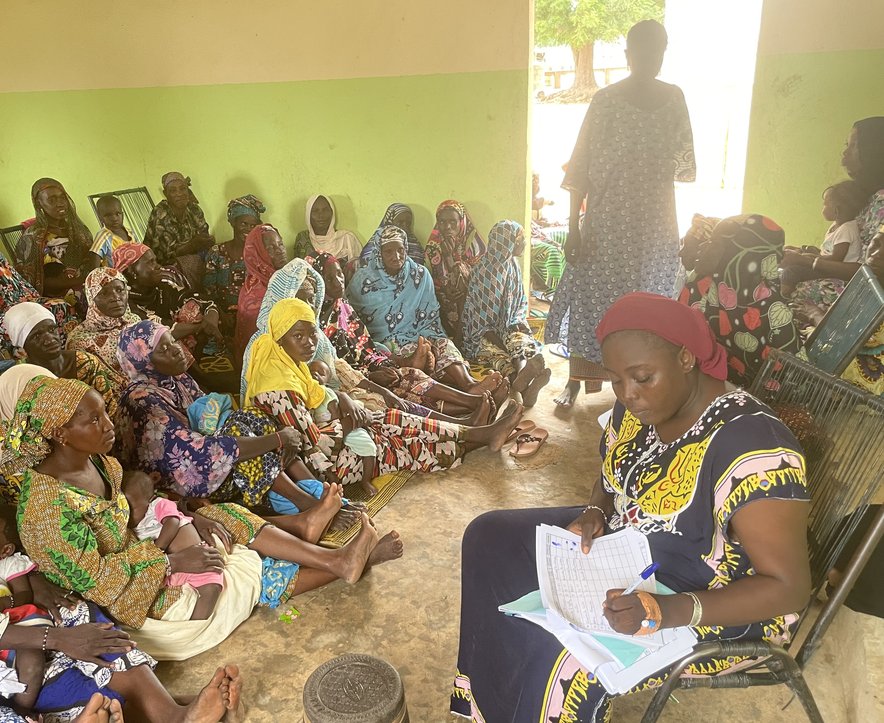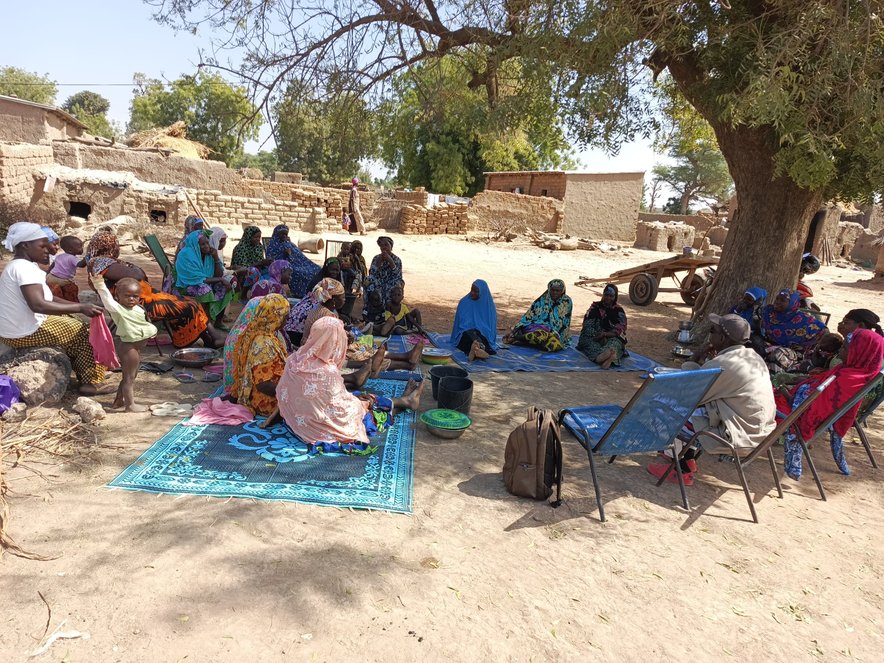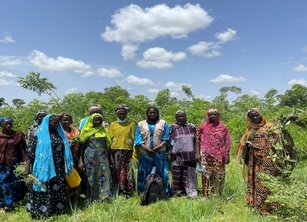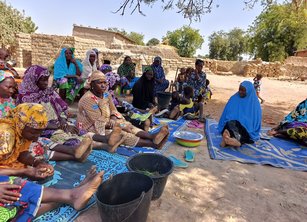In Mali, CARE International UK, CARE Mali and local partner AMAPROS work with women and their communities who are at the crossroads of conflict and climate change.
Faced with increasingly extreme weather events, they are witnessing a steady degradation of natural resources like water, timber and land for farming, which is increasing competition - and conflict - between communities. Amid this, resource constraints often exacerbate gender inequality and lead to women’s needs being ignored.
The Gender Transformative and Equitable Natural Resource Management for Resilience, Social Cohesion and Peace project (GENRE+ Phase II) has countered this by strengthening the voice and leadership of women in climate-affected areas of Mali's Ségou region, supporting them to participate in decisions around natural resource management and conflict prevention. The project was funded by the UK Foreign, Commonweath and Development office (FCDO) and ran from 2022-25.
GENRE+ Phase II: Project aims
The project aimed to:
- Improve governance in natural resource management, making it more inclusive, consensual and collaborative.
- Revitalise traditional conflict prevention and management mechanisms and strengthen community-based adaptation to reduce vulnerability to climatic and social shocks.
- Transform negative gender social norms to ensure women’s inclusion in strategic decision-making spaces related to natural resource management and peacebuilding.
Key project resources
Impact and Learning
The impact of GENRE+

The project has resulted in a wide range of impacts for women and their communities:
1. Women’s participation in natural resource management decision-making has increased
Social norms are changing. Women now hold positions of authority for the first time on bodies such as village councils, village land commissions and forest, environmental protection and conflict management committees.
- 16 women have now been appointed to new leadership roles
- Women's confidence to negotiate has increased (rising from 46% to 56%).
- Gender equal attitudes among men and boys have improved (rising from 73% to 83%)
“Before we used to seek the advice of our wives discreetly at home to deal with a problem. Nowadays, women play this role directly in the COFO or as female representatives on the village council in order to resolve conflict.’’
- Male participant, Toukoro focus group
2. Communities are better equipped to adapt to the impacts of climate change
69% of respondents report that they have adopted practices to protect their livelihoods from climate shocks. This includes:
- Planting improved seeds
- Sustainable farming techniques, including crop diversification
- Reforestation initiatives
- Creation of 16km of animal passages
- Development of 24 women's market garden areas
- 3036 women can now either sell or consume their own produce
3. More robust and inclusive natural resource governance has strengthened compliance, accountability and sustainability
- 7 new natural resource management conventions on fishing, agriculture, livestock farming, forestry and quarrying were agreed through participatory consultation.
- 75% respondents felt that the rules governing the use and management of natural resources were now well understood and accepted by everyone
- Improved natural resource governance has helped secure the protection of tree species, reduced illegal logging, illegal land clearing and bush fires, and reduced conflicts between farmers and livestock breeders.
- 86 proposed climate adaptation actions proposed by diverse community members have been taken into account by 10 Communal Councils in the annual financing plans, contributing to more sustainable, longer-term responses to build resilience to climate change.
4. Conflicts are reduced and are now addressed at community level

- The frequency of conflicts has reduced in the past 12 months from 60 to 22%.
- In the village of Toukoro (Bla), the village chief estimates that over 80% of conflicts are now resolved using traditional mechanisms. Regular consultation frameworks demonstrate gradual strengthening of collaborative relations between villages, with a positive influence perceived even in surrounding villages outside the project area.
- 66% participants (85% women/53% men) agree that increased participation of women in decision-making processes has led to more effective solutions to conflicts over natural resources (CARE research, March 2024).
5. Women now actively collaborate in climate adaptation and awareness raising - beyond their traditional roles
Women have launched reforestation initiatives, now practice Assisted Natural Regeneration (ANR) and participate in forest protection brigades in multiple communes.
6. Women have access to natural resource management resources for the first time
This has increased equity and reduced pressure on agro-pastoral land. In Benguene, the new female representative on the Village Council successfully lobbied the Council and Cooperative Society for Cotton Producers for women to receive subsidised fertiliser, which until now, no woman had benefitted from.
In Ouedenbougou, following lobbying by the Women Lead in Emergencies group, a certificate of transfer of a plot of land was, for the first time, drawn up in the name of the women of Ouedenbougou.
7. Women have more influence in decision making spaces
Women can now actively defend the interests of women and other groups in natural resource management and conflict resolution.
The key role of women in drafting local natural resource management agreements has led to changes in legal regulations - notably in relation to allocation of at least 15% to women's and youth associations in the event of land development.
8. A shift in male attitudes is creating space for more diverse voices in conflict prevention and mediation
In Siribougou, five women are now invited to join the Council for crucial village decisions – a practice that was unheard of before GENRE + interventions. These women have recently acted as mediators in resolving a conflict between two producers.
9. Women are working together in unexpected ways
In Konodimini, women denounced the renewal of the all-male board of the Community Health Association (ASACO) Following their intervention, the board now has a balanced 50% representation of 7 women and 7 men.
Religious leaders are also consulting with women for the first time as their value in contributing to community affairs is being recognised.


